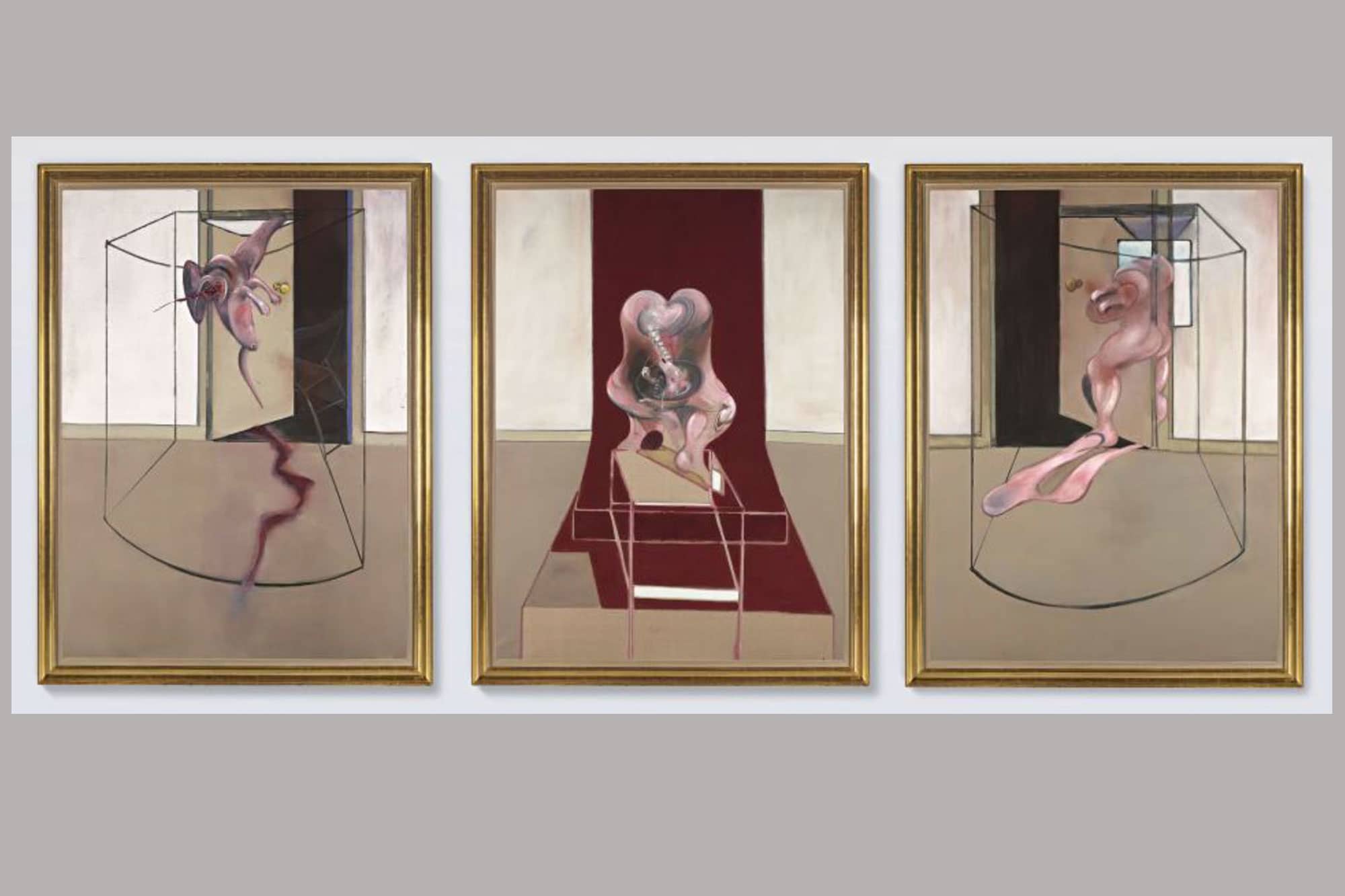Francis Bacon’s “Triptych Inspired by the Oresteia of Aeschylus.”
Source: Sotheby’s
Sotheby’s plan to auction off a $60 million painting on Monday night marks the first real test of the global art market since the coronavirus pandemic — and is a bold experiment in the centuries-old model for sales auctions.
Sotheby’s aims to sell more than $300 million worth of art in a series of auctions starting Monday night and running through Tuesday. The sales, which replace canceled auctions in May, come as the economy and stock market face renewed pressure from the Covid crisis and as many of the wealthy are holding back on big purchases until after the presidential election.
Many potential bidders haven’t been able to view the works in person, given visitor restrictions at Sotheby’s New York headquarters, and bidders won’t be able to physically attend the auction.
Sotheby’s is counting on a new form of virtual live auction, with telephone and online bidding and a live auctioneer in London, and surging interest from new online buyers to lift the high-end market out of the crisis.
“We’ve been incredibly impressed over the last three months, despite all of the contextual backdrop, just how resilient the market has been,” said Sotheby’s CEO Charles Stewart. “I would say that in many ways, we’re seeing actually increased engagement from our collectors.”
Still, the recovery in the art market in the coming months is likely to be highly uneven, especially for nonmasterpiece works that aren’t already well known. Bank of America said in a new report that sellers are likely to stay on the sidelines over the summer, constraining the supply of works for sale. It said supply could “spike sharply” in the fall, leading to lower prices, and then stabilize, with prices 10% to 15% lower, depending on the course of the virus.
H/O: Roy Lichtenstein’s “White Brushstroke I”
Source: Sotheby’s
“Demand — a function of collector sentiment — will ultimately be determined by the medical reality, stock market levels and buyer’s liquidity,” according to the report. “Prices on the few masterpieces that trade should remain stable but hyper-contemporary and middle-market works will likely see downward pressure.”
The star of the Sotheby’s sale is Francis Bacon’s “Triptych Inspired by the Oresteia of Aeschylus,” which is expected to sell for more than $60 million. Another large-format triptych by the 20th century artist sold at auction in 2013 to Elaine Wynn for $142.4 million.
Sotheby’s will also be selling a prized Clyfford Still painting. It is estimated to sell for $25 million to $35 million. And it has Roy Lichtenstein’s influential “White Brushstroke” for $20 million to $30 million.
Sotheby’s and Christie’s are taking different approaches to the new auction landscape. Sotheby’s’ main auction on Monday evening will be “live” in the sense that it will be run by an auctioneer in London, but there won’t be any other people in the room. Instead, the auctioneer will be surrounded by video screens, showing Sotheby’s colleagues in New York and Hong Kong who will be bidding for clients on the phone. The auctioneer will also be taking bids online.
Stewart said that even before Covid, many collectors were already making their bids at auction by phone. The pandemic has also given rise to a new wave of collectors who have discovered the auction houses and collectibles by browsing online.
Sotheby’s has held more than 100 online sales since March, totaling nearly $200 million. That compares with only 40 sales totaling $23 million during the same period last year.
Clifford Still’s “1947-Y-No. 1”
Source: Sotheby’s
Sotheby’s has also added new features to its app and website, making it easier for collectors to learn about certain items and delve deeper into the features. On Wednesday, Sotheby’s launched a new augmented reality feature on its app that allows users to virtually place a painting on their wall and see it from any perspective. While the art world has talked for years about shifting more sales online, most galleries and dealers and auction houses have been slow to adapt — until now.
“We’ve clearly crossed a tipping point,” Stewart said. “We have our entire organization and our collector community engaged in these new ways of learning about art, following an auction, seeing an exhibition and ultimately bidding in an auction. That’s all been revolutionized.”
Christie’s will hold its live-streamed auction on July 10, with what it’s calling a “relay auction.” The first auction will start with an auctioneer in Hong Kong, then pass the auction to London and finally to New York. The auction will feature Lichtenstein’s giant “Nude with Joyous Painting,” estimated at $30 million, and Ed Ruscha’s “Annie” estimated at $20 million to $30 million.
